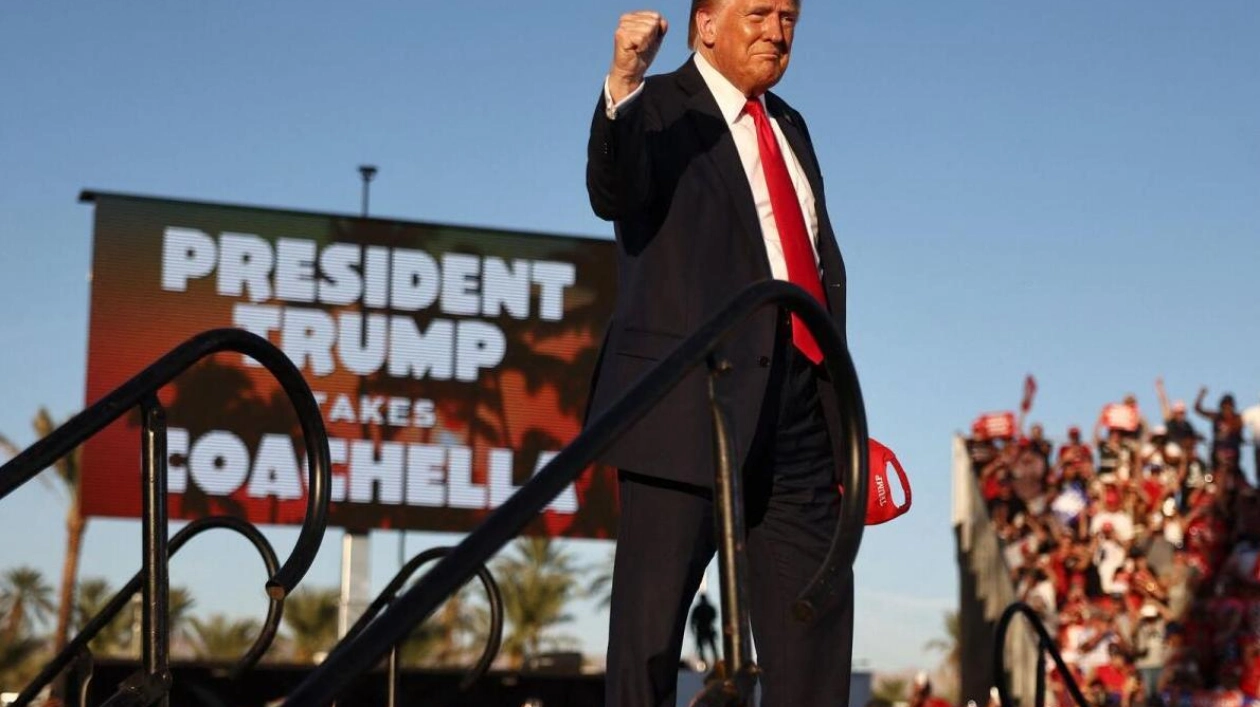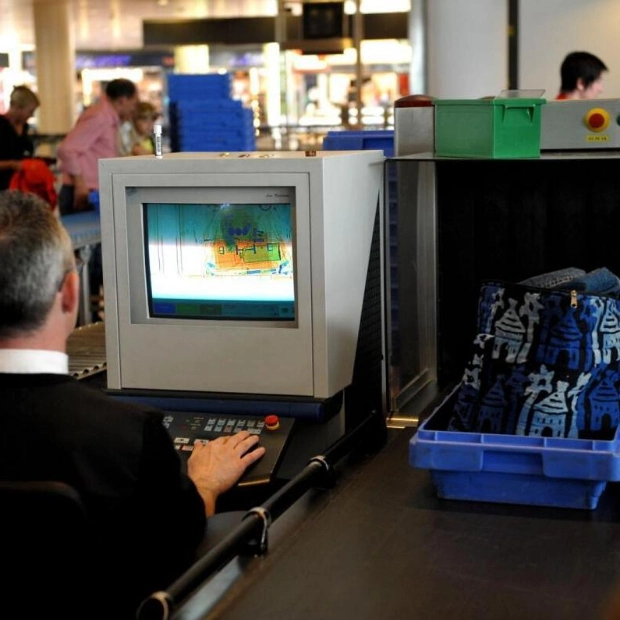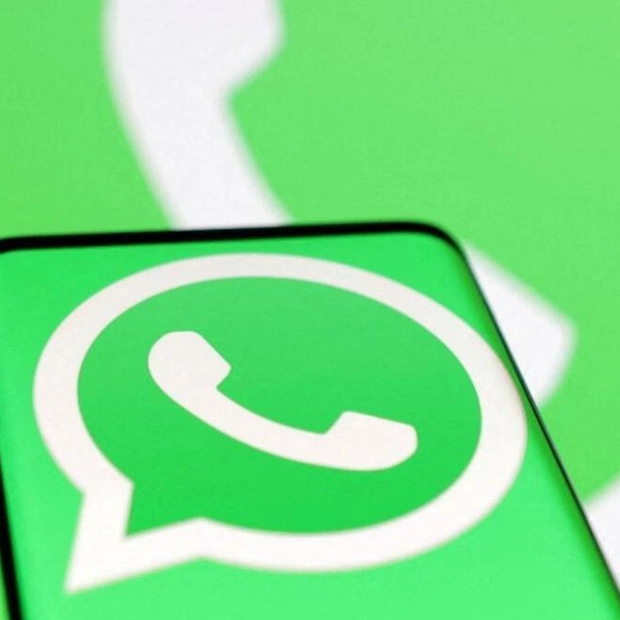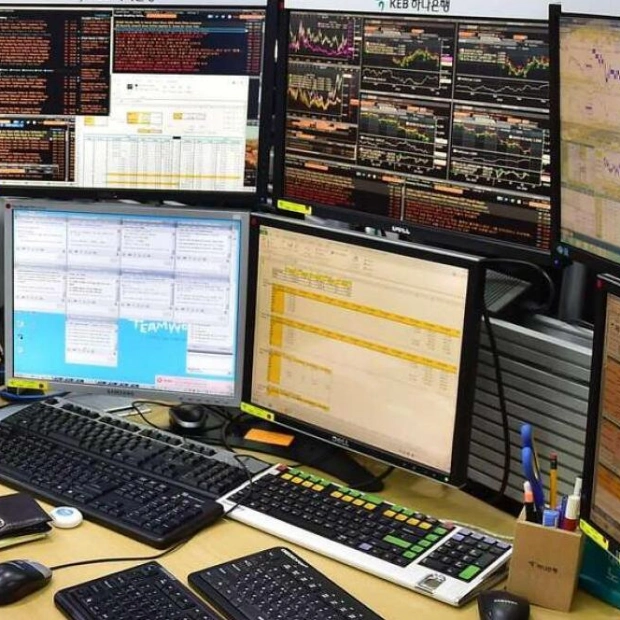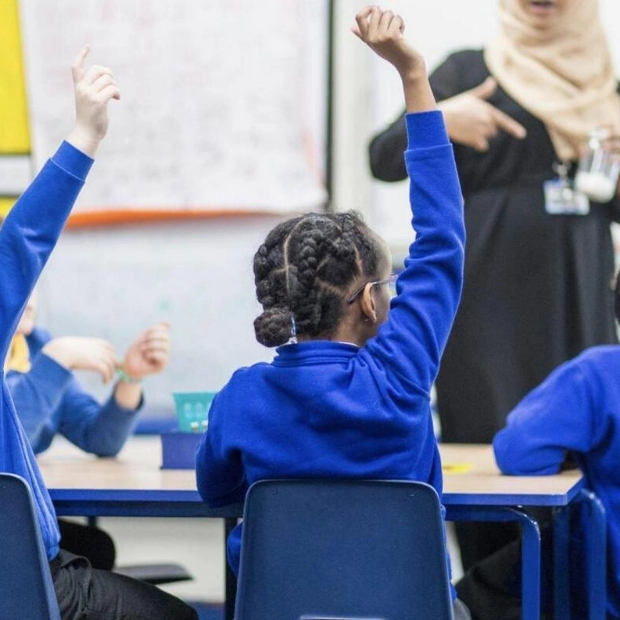Republican presidential nominee and former US president Donald Trump gestures while walking onstage for a campaign rally on October 12, 2024 in Coachella, California. – AFP
Millions of dollars have been wagered on the US election outcome following a recent court decision that allowed gambling on the vote, intensifying the already tense race. Contracts for a Harris victory were trading between 48 and 50 percent in favor of the Democrat on Friday on Interactive Brokers, a firm that has capitalized on a legal loophole created earlier this month in the ongoing regulatory battle over election markets. With just a month left until the November 5 vote, markets opened after a Washington court ruled that Kalshi, a startup attempting to introduce political betting in the United States for years, could accept wagers while legal appeals by regulators against the company continue. In a matter of days, over $6.3 million was bet on the Harris-Trump matchup alone, with users also wagering on control of the House and Senate.
This marks the latest development in a long-standing conflict between the Commodity Futures Trading Commission and firms aiming to offer election betting—a practice that is legal in several other countries and one that some Americans engage in through offshore markets. More than $1.7 billion has been placed on the Harris-Trump matchup on offshore site Polymarket, where Trump held a 54 to 45 advantage over Harris on Friday evening. Proponents of gambling, or 'event contracts' in financial terms, argue that it is a legitimate way to hedge against unfavorable outcomes, comparing it to futures contracts. Some also contend that these markets are more reliable than polls.
'These contracts are important,' said Steve Sanders, executive vice president of marketing and product development at Interactive Brokers. 'They're good for people to take a view on what they think is happening and hedge their portfolios.' In just a few days, over 1 million contracts were traded on Interactive Brokers. Prior to the October 2 ruling, only two election betting markets were legally operating in the United States, granted exemptions due to their affiliation with research projects and strict limits on betting amounts. However, critics express concern about the widespread election gambling in a polarized environment where basic facts are disputed and misinformation is rampant.
'I don't want to be too dramatic, but we live in a country where tens of millions of Americans believe the last presidential election was stolen,' said CFTC General Counsel Rob Schwartz during recent arguments against Kalshi. 'Ensuring the integrity of elections and avoiding improper interference and misinformation are undoubtedly paramount public interests,' Judge Patricia Millett wrote in the decision that allowed bets to be placed while the appeals against Kalshi continue. However, the CFTC provided 'no concrete basis to conclude that event contracts would likely be a vehicle for such harms.'
While the door on political betting might close again on further appeal, any decision would likely come after November 5, keeping markets open through the election. For Pratik Chougule, co-founder of the Coalition for Political Forecasting, an advocacy group, 'it's been a good year' for his political wagers so far. He's considering opening an account with Interactive Brokers now that it is operating election contracts. Judges on further appeals might be 'a bit more skeptical,' but Chougule noted that in recent years, the CFTC has at least begun to understand the arguments in favor of election markets, even if regulators don't endorse them.
